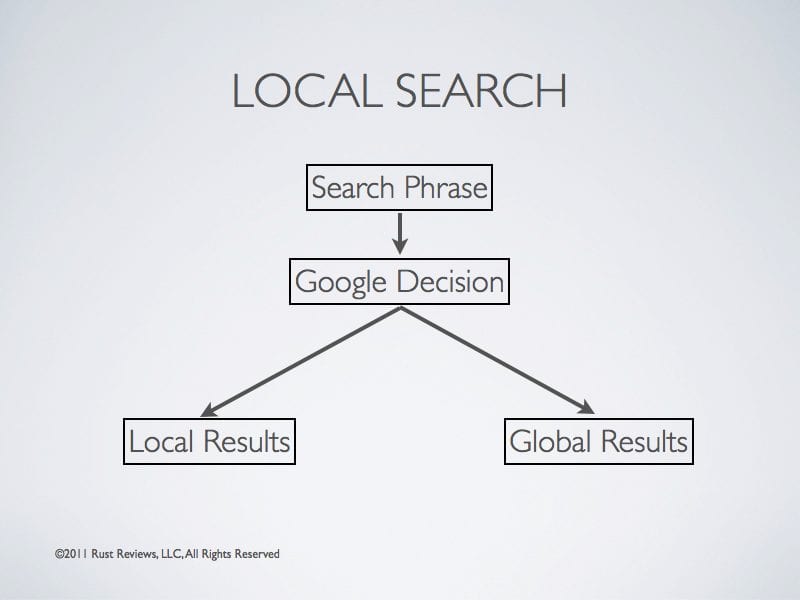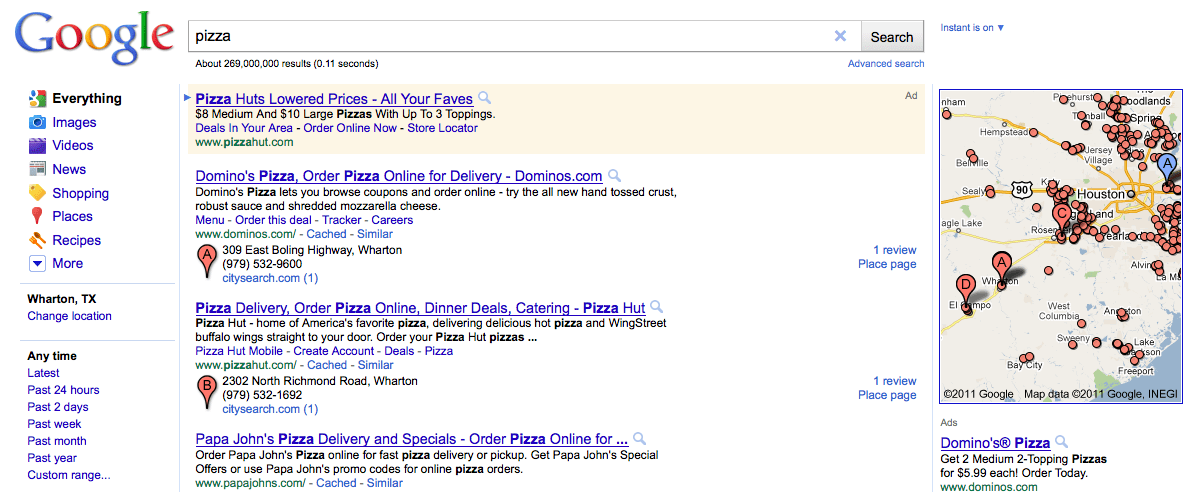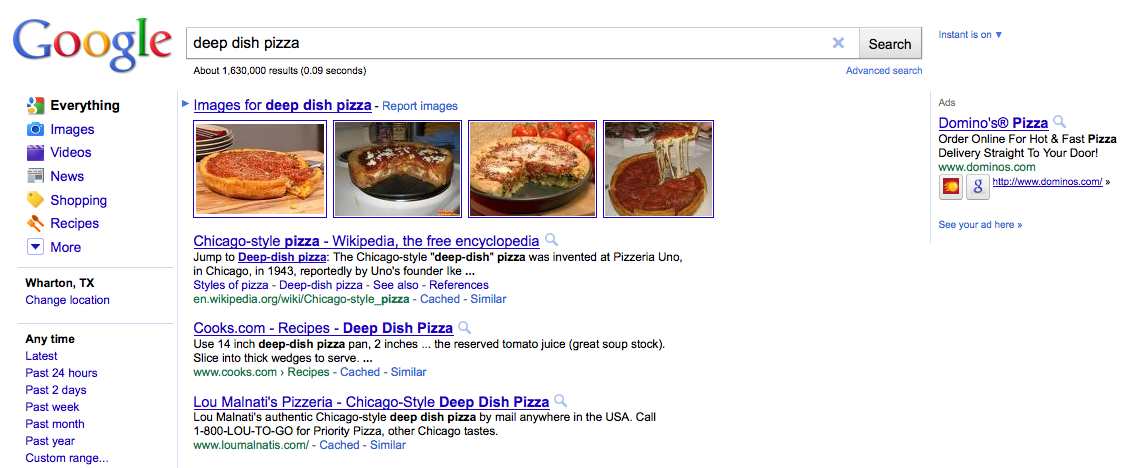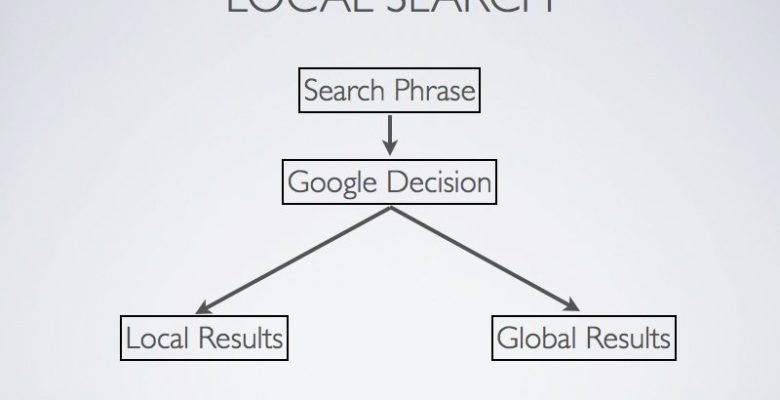
Let’s look at an example. If I search for “pizza,” Google assumes that I’m looking for a pizza restaurant in Wharton, TX, which is the IP address associated with my computer. The local search results for “pizza” include relevant websites combined with local business information and links to reviews of those local businesses. If I’m looking for a pizza restaurant in another location, it’s easy to change the location using the link in the middle of the left column. This is what Google’s search results look like.

If Google determines that I’m looking for a global search result, it returns a list of relevant websites without imputing a location. Here I modified the search to “deep dish pizza” and Google provided a list of websites and images that are associated with deep dish pizzas. However, if I were looking for a deep dish pizza in Wharton, TX, I’d be out of luck with a normal Google, Yahoo, or Bing web search.

So the lesson here is that you should check your best keywords to determine if Google treats them as local or global. If Google understands them to be local keywords, then those words and phrases should be used in developing your local business listings — the listings that appear at the very top of local search results. For keyword phrases that Google treats as global, don’t optimize your local listings for them and plan to optimize for them in your website.
If you have any questions about Google’s local search decision and how it affects your local search engine optimization effort, please contact Rust Reviews.
